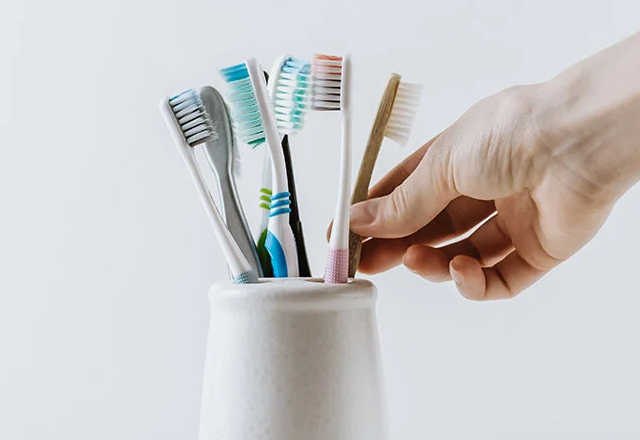
Say cheese and smile your way through life! But what's the point of having a beautiful smile if it's not healthy?
Dental problems can be a real pain, both physically and financially, and they can take away the confidence that comes with a bright and healthy smile. So, it's essential to take good care of your teeth and gums to avoid any dental issues. In this article, we will explore some easy and effective tips to prevent dental problems and keep your smile healthy. From brushing and flossing to maintaining a healthy diet, we've got you covered. So, whether you're a cheese lover or not, read on to discover how to keep your teeth in tip-top shape and ensure that your smile stays bright and beautiful for years to come.
Common Dental Problems
Dental problems are common and can range from minor annoyances, such as bad breath, to serious issues like cavities and gum disease. Here are some of the most common dental problems:
Bad Breath - Bad breath, also known as halitosis, can be caused by poor oral hygiene, certain foods, tobacco use, and medical conditions. To prevent bad breath, make sure to brush and floss your teeth regularly, use mouthwash, drink plenty of water, and avoid foods that can cause bad breath, such as garlic and onions.
Tooth Decay - Tooth decay, also known as cavities, is caused by the buildup of plaque on the teeth. Plaque is a sticky film of bacteria that forms on the teeth and can lead to tooth decay if not removed. To prevent tooth decay, make sure to brush your teeth twice a day, floss daily, and avoid sugary and acidic foods and drinks.
Gum Disease - Gum disease, also known as periodontal disease, is an infection of the gums that can lead to tooth loss if left untreated. It is caused by the buildup of plaque on the teeth and can be prevented by maintaining good oral hygiene habits, such as brushing and flossing regularly, using mouthwash, and getting regular dental check-ups.
Causes of Dental Problems
Dental problems can be caused by a variety of factors, including poor oral hygiene, a diet high in sugar and acid, tobacco use, and genetics. Here are some of the most common causes of dental problems:
Poor Oral Hygiene - Poor oral hygiene is one of the leading causes of dental problems. If you don't brush and floss your teeth regularly, plaque can build up on your teeth and lead to tooth decay and gum disease.
Diet - A diet high in sugar and acid can also contribute to dental problems. Sugar feeds the bacteria in your mouth, which can lead to tooth decay, while acid can erode the enamel on your teeth and make them more susceptible to decay.
Tobacco Use - Tobacco use, including smoking and chewing tobacco, can also contribute to dental problems. Tobacco use can cause bad breath, stain your teeth, and increase your risk of developing gum disease and oral cancer.
Genetics - Your genetics can also play a role in your dental health. Some people are more prone to dental problems than others, even if they maintain good oral hygiene habits.
The Importance of Oral Hygiene
Maintaining good oral hygiene is essential for preventing dental problems and keeping your smile healthy. Here are some of the most important oral hygiene habits to keep in mind:
Brushing - Brushing your teeth twice a day is essential for removing plaque and preventing tooth decay and gum disease. Use a soft-bristled toothbrush and fluoride toothpaste to brush your teeth for two minutes each time.
Flossing - Flossing removes plaque from between your teeth and along the gumline, where your toothbrush can't reach. Floss at least once a day to keep your teeth and gums healthy.
Mouthwash - Mouthwash can help kill bacteria in your mouth and freshen your breath. Use an alcohol-free mouthwash to avoid drying out your mouth.
Tongue Scraper - A tongue scraper can help remove bacteria and debris from your tongue, which can cause bad breath.
Tips for Maintaining Oral Hygiene
Maintaining good oral hygiene can be easy if you know what to do. Here are some tips to help you keep your teeth and gums healthy:
Brush and Floss Regularly - Brush your teeth twice a day and floss at least once a day to remove plaque and food debris from your teeth and gums.
Use Fluoride Toothpaste - Fluoride toothpaste can help strengthen your teeth and prevent tooth decay. Look for toothpaste with the American Dental Association (ADA) seal of approval.
Limit Sugary and Acidic Foods and Drinks - Sugar and acid can erode the enamel on your teeth and make them more susceptible to decay. Limit your intake of sugary and acidic foods and drinks, such as soda and candy.
Drink Plenty of Water - Drinking plenty of water can help wash away food debris and bacteria from your mouth and keep your mouth hydrated.
Chew Sugar-Free Gum - Chewing sugar-free gum can help stimulate saliva production, which can neutralize acid and prevent tooth decay.
Foods that Promote Dental Health
Eating a healthy diet can also help promote dental health. Here are some foods that are good for your teeth and gums:
Dairy Products - Dairy products, such as milk, cheese, and yogurt, are rich in calcium, which can help strengthen your teeth and bones.
Crunchy Fruits and Vegetables - Crunchy fruits and vegetables, such as apples and carrots, can help scrub your teeth and stimulate saliva production.
Leafy Greens - Leafy greens, such as kale and spinach, are rich in vitamins and minerals that can help keep your teeth and gums healthy.
Nuts and Seeds - Nuts and seeds, such as almonds and sesame seeds, are rich in calcium and other nutrients that can help strengthen your teeth and gums.
The Role of Fluoride in Dental Health
Fluoride is a mineral that can help prevent tooth decay by strengthening the enamel on your teeth. Here are some ways to get fluoride:
Fluoride Toothpaste - Using fluoride toothpaste is one of the easiest ways to get fluoride. Look for toothpaste with the ADA seal of approval.
Fluoridated Water - Drinking fluoridated water can also help prevent tooth decay. Most tap water in the United States is fluoridated.
Fluoride Treatments - Your dentist may also recommend fluoride treatments, such as a fluoride varnish or foam, to help strengthen your teeth and prevent tooth decay.
Regular Dental Check-Ups and Cleanings
Regular dental check-ups and cleanings are essential for maintaining good oral health. Your dentist can identify any dental problems early and treat them before they become more serious. Here are some things to expect during a dental check-up and cleaning:
Exam - Your dentist will examine your teeth and gums for any signs of decay, gum disease, or other dental problems.
X-Rays - Your dentist may also take x-rays of your teeth to check for any hidden dental problems.
Cleaning - Your dental hygienist will clean your teeth and remove any plaque and tartar buildup.
Fluoride Treatment - Your dentist may also recommend a fluoride treatment to help strengthen your teeth and prevent tooth decay.
Preventive Measures for Dental Problems
Preventing dental problems is easier than treating them. Here are some preventive measures you can take to keep your teeth and gums healthy:
Brush and Floss Regularly - Brush your teeth twice a day and floss at least once a day to remove plaque and food debris from your teeth and gums.
Use Fluoride Toothpaste - Fluoride toothpaste can help strengthen your teeth and prevent tooth decay. Look for toothpaste with the ADA seal of approval.
Limit Sugary and Acidic Foods and Drinks - Sugar and acid can erode the enamel on your teeth and make them more susceptible to decay. Limit your intake of sugary and acidic foods and drinks, such as soda and candy.
Drink Plenty of Water - Drinking plenty of water can help wash away food debris and bacteria from your mouth and keep your mouth hydrated.
Quit Smoking - Tobacco use can cause bad breath, stain your teeth, and increase your risk of developing gum disease and oral cancer. Quitting smoking can improve your dental health and overall health.
Conclusion
In conclusion, dental problems can be prevented with good oral hygiene habits, a healthy diet, and regular dental check-ups and cleanings. Brushing and flossing regularly, using fluoride toothpaste, limiting sugary and acidic foods and drinks, and drinking plenty of water can all help keep your teeth and gums healthy. By taking care of your dental health, you can ensure that your smile stays bright and beautiful for years to come. So, say cheese and smile your way through life!



